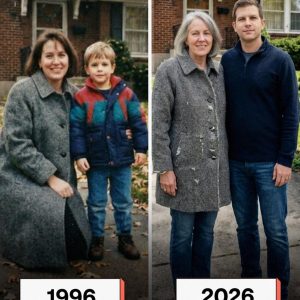He lives ten minutes away but might as well be a stranger. Since moving in with his girlfriend last year, I haven’t seen him once. I kept texting, calling, sending small amounts of money—“get something sweet for yourself”—but only got read receipts and silence.
Last week, I called so many times he finally answered, voice flat: “I’m busy, Ma. I’ll visit when I can.” No anger, just indifference. That stung.
His name is Nishan. Twenty-seven now, quiet and kind. Things changed when he started dating Zahra. They visited once nearly a year ago. She was polite but distant, and Nishan didn’t ask for seconds of my cooking. After that, silence.
Then, a knock. A woman named Reena, a nurse, holding a photo of Nishan looking thin and pale. He’d moved out months ago, lost his job, was sleeping on a mattress in a laundry room, then disappeared.
“Homeless?” I whispered.
“For a while,” she said. “He was ashamed. People go quiet when they think they’ve disappointed the ones who love them.”
I sent money. She said he was “figuring it out.”
Days later, a young man brought groceries, saying Nishan was at a shelter, helping with job applications, remembered my cooking.
I found him, huddled over a laptop, hoodie pulled up. When he saw me, he cried—a deep, bone-deep cry. I held him and said, “You didn’t mess up. You just forgot where home is.”
He’s rebuilding slowly—part-time job, cooking again, calling me “Ma” with tenderness.
Last week, he took me out for dosa, insisted on paying, said, “Maybe this was the reset I needed.”
Life breaks us in ways that open doors. Sometimes love means waiting with the stove warm and the door wide open.
If someone you love is distant, try again—with space, patience, and a soft place to land.




